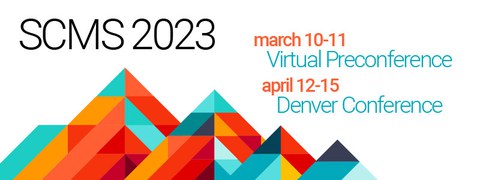Feb 02, 2023
Infrastructures of State Time, Panel co-organized by Dr. Michelle Pfeifer @ Annual Conference of the Society for Cinema and Media Studies, April 12-15, Denver, Colorado
Infrastructures of State Time, Panel co-organized by Dr. Michelle Pfeifer
Annual Conference of the Society for Cinema and Media Studies, April 12-15, Denver, Colorado
Thursday, April 13
5:15 – 7:00 pm
This panel with contributions by Ayesha Omer (UPenn), Anna Stielau (NYU), Ian Alexander (Wellesley College), and Michelle Pfeifer (TU Dresden) brings together four radically different engagements with media artifacts and practices, each opening new paths to specific problems of time, media, and state manipulation, production, and deployment of both. Across these four sites–dust on Pakistan’s Karakoram Highway; voice capture technology in Germany; redress processes and imaginaries in South Africa; and solitary confinement chambers in the US–each panelist interrogates a concrete temporal practice by a particular state against migrants, Indigenous peoples, and prisoners.
In “The Trouble with Originals” and “Sonic Afterlives,” the state weaponizes the media technologies of sound recording, documentation, and visual culture to produce narratives and counter-narratives of origin and place. “The Road in the Dust” and “Box Time” both turn toward mediated state practices of destruction and violent disconnection. Emerging from these focused studies is a global picture of the power of states, wielding media technologies and infrastructures, to create, narrate, mechanize, destroy, and alter temporality. As such, this panel asks how media make and remake time, and to what end. How do contexts like the archive, camp, prison, and infrastructure mediate experiences and narratives of time? And how do these productions of time shape conceptions of history, with implications for how we study the history of media? Each of the four papers engages these questions to interrogate state time and in the process, each reflects on the stakes of studying the media histories of temporal capture and manipulation. Taken together, these papers offer glimpses of how people who are subject to state violence can and do challenge oppressive media-temporal regimes in the past, present, and future.

